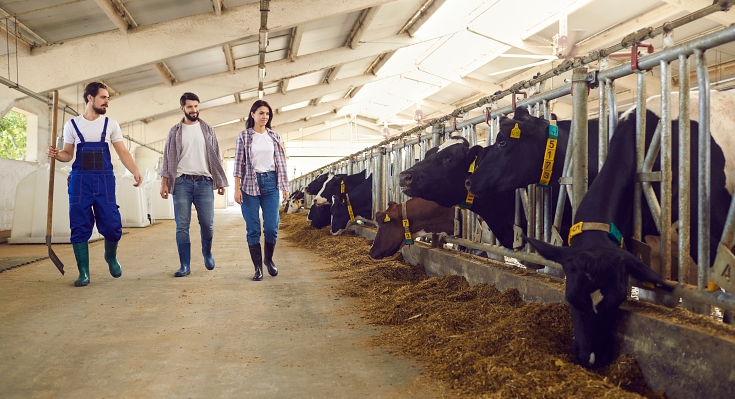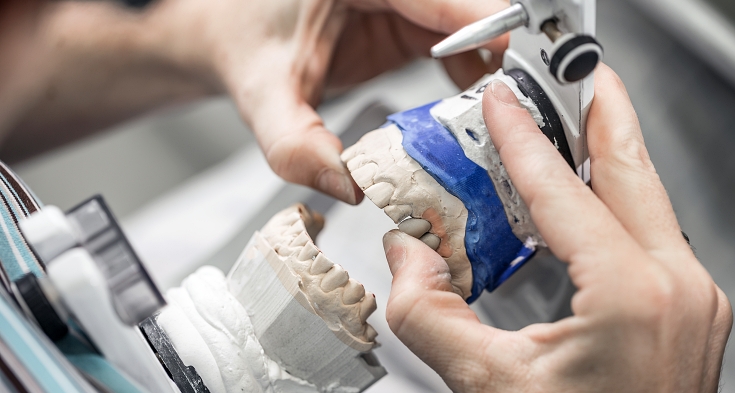
Florida’s economy thrives on industries that often employ minor hospitality, retail, agriculture, and construction, among them. While teen employment provides valuable work experience and helps families financially, not all jobs are suitable for young workers. That is why the Florida Department of Business and Professional Regulation (DBPR) enforces strict rules about what minors can and cannot do in the workplace. These rules, known as restricted or hazardous occupations, draw a clear line between safe and unsafe jobs for teens under 18.
At Elevate Legal Services, PLLC, we know that navigating Florida’s child labor laws can be overwhelming. As a Boca Raton law firm focusing on defending DBPR violation administrative complaints and administrative law hearings, we regularly assist employers, parents, and professionals in understanding their rights and obligations.
For guidance on DBPR violations or to defend your business in an administrative hearing, contact Elevate Legal Services, PLLC today at 561-770-3335 or email [email protected]. Our attorneys are here to protect your reputation and your future.
Why Restricted Occupations Exist
Restricted occupations were created to shield minors from dangerous or unhealthy work conditions. Lawmakers recognized that children and teens are more vulnerable to injuries, lack the same judgment as adults, and should not be exposed to tasks that could endanger their physical or mental health. By limiting access to hazardous jobs, Florida law not only protects minors but also ensures that employers maintain safe and compliant workplaces.
These restrictions also protect employers. Without clear laws, businesses could unknowingly expose minors to unsafe duties, leading to workplace accidents, lawsuits, and DBPR administrative complaints. By codifying what minors can and cannot do, Florida provides clarity that, when followed, keeps both young workers and businesses safe.
Florida’s General Framework
Florida child labor law, outlined in Chapter 450 of the Florida Statutes, works hand in hand with the federal Fair Labor Standards Act (FLSA). In most cases, the more restrictive rule applies. This means employers cannot rely solely on state guidelines if federal standards are stricter.
Florida specifically adopts the 17 Hazardous Occupations (HOs) outlined in the FLSA. These include tasks such as mining, roofing, demolition, and operating heavy machinery. Florida’s DBPR enforces these restrictions through inspections, investigations, and administrative actions against violators. Employers who fail to comply may face steep fines and even double workers’ compensation liability if a minor is injured while working illegally.
Understanding Job Restrictions for Minors Under 18
For minors under 18, Florida’s restricted occupations cover a wide range of dangerous work. Teens are prohibited from working around explosives or radioactive substances, driving or operating motor vehicles, or working in sawmills and logging. They cannot operate power-driven meat processing machines, which include slicers, grinders, and slaughtering equipment, nor can they work in meatpacking plants.
They are also banned from working on scaffolding, roofs, ladders over six feet, or in nonresidential construction. Demolition, wrecking, excavation, and mining are also prohibited. Other banned tasks include operating power-driven bakery equipment, circular saws, band saws, and guillotine shears. Even agricultural tasks are limited, as minors cannot operate tractors over 20 PTO horsepower or forklifts, nor can they handle earthmoving or plowing machinery.
In addition, minors under 18 cannot work with compressed gases over 40 psi, toxic substances, pesticides, corrosives, or in firefighting roles. They are also prohibited from working with live electrical wiring or dangerous electrical apparatus. These restrictions are designed to keep young workers away from high-risk environments.
Extra Protections for Younger Workers Ages 14 and 15
For younger teens, the restrictions are even tighter. Minors aged 14 and 15 cannot operate any power-driven machinery other than basic office machines. This includes everyday tools such as lawnmowers, cutters, and even some kitchen equipment. They cannot maintain or repair machines, nor can they work in freezers, meat coolers, or around dangerous slicers, grinders, or mixers.
Cooking and baking are generally prohibited, with only a few exceptions for safe, non-hazardous food preparation. These minors cannot work in construction, warehousing, transportation, communications, boiler rooms, or engine rooms. They are barred from loading or unloading trucks, working as messengers, or handling dangerous animals. Spray painting and door-to-door sales are also restricted, unless very specific exceptions apply.
These limitations ensure that the youngest workers are kept in environments where the risks are minimal and supervision is straightforward.
Florida’s HB 917: Opening Doors in Residential Construction
In April 2024, Florida passed House Bill 917 (HB 917), which introduced a significant exception for 16 and 17-year-olds in the field of residential construction. Under this law, minors in this age group may work in certain construction settings if strict conditions are met.
To qualify, a teen must complete OSHA 10 certification, demonstrating basic knowledge of workplace safety. They must be directly supervised by an adult at least 21 years old with at least two years of related experience and OSHA 10 certification of their own. Even then, the teen may not work on scaffolds, roofs, or ladders above six feet, and they may not engage in tasks that violate federal OSHA or FLSA rules.
This law reflects Florida’s attempt to balance workforce development with safety. Supporters argue that it provides teens with valuable skills, while critics fear it exposes minors to unnecessary risks. Either way, the change highlights why employers must stay vigilant about evolving child labor rules.
Why Employers Must Take Restricted Occupations Seriously
Employers who ignore restricted occupation laws face more than reputational damage. The DBPR can impose fines of up to $2,500 per violation under state law, while the federal government may impose penalties of up to $11,000 per violation under the FLSA. If a minor is injured while working in a restricted occupation, Florida workers’ compensation law allows for double the standard compensation, a devastating financial blow to any business.
Compliance is not just about avoiding penalties. It is also about protecting young employees from serious harm and demonstrating a commitment to ethical business practices. Employers who knowingly or unknowingly place minors in restricted occupations risk damaging not only their bottom line but also their credibility in the community.
Why Restricted Occupations Matter for Families
For families, restricted occupations may seem like an obstacle to a teen’s desire to work. Parents may feel that their child is capable of performing certain tasks, especially in family-owned businesses. However, these restrictions exist because the risks are real. Young workers are more likely to suffer serious injuries when exposed to heavy machinery, hazardous substances, or high-risk environments.
Families should view these restrictions as a safeguard rather than a barrier. By guiding teens toward safe employment opportunities, parents can ensure their children gain work experience, responsibility, and independence without unnecessary risk.
Common Misconceptions About Restricted Occupations
Many myths surround child labor restrictions. Some employers assume that if a teen works for their parents, they can engage in any type of work. In reality, hazardous occupations remain off-limits even in family businesses. Others believe that waivers can excuse minors from all restrictions, but waivers only apply to hour limitations, not hazardous job bans.
Another common misconception is that DBPR does not actively enforce these laws. In fact, DBPR conducts investigations and issues administrative complaints regularly, often in response to workplace accidents or employee complaints. Assuming these laws are unenforced can lead to devastating consequences for both employers and families.
How Elevate Legal Services, PLLC Helps
When the DBPR investigates a business or files an administrative complaint, the process can be intimidating. Employers may feel they have few options and risk severe penalties. That is where Elevate Legal Services, PLLC comes in.
Our attorneys in Boca Raton focus on defending businesses and professionals in DBPR administrative hearings. We provide skilled representation, compliance advice, and strategic defense designed to protect your rights and your livelihood. From negotiating with regulators to presenting strong defenses in hearings, our goal is to minimize penalties and preserve your reputation.
If your business has been accused of allowing minors to work in restricted occupations or faces any other DBPR child labor violation, call 561-770-3335 or email [email protected]. The attorneys at Elevate Legal Services, PLLC, are ready to help you navigate this challenging process.
Looking at the Bigger Picture of Teen Workplace Safety
Florida’s restricted occupation rules serve a vital role in maintaining workplace safety and protecting the next generation. They are not meant to punish families or employers but to prevent minors from engaging in tasks that could cause lasting harm. At the same time, they place responsibility on employers to understand and comply with the law.
For families, these restrictions provide peace of mind so that their teens can work safely. For employers they create clear boundaries that, if respected, can prevent costly legal troubles. For attorneys at Elevate Legal Services, PLLC, these rules form the foundation of many DBPR cases we defend, making it critical for clients to understand both their rights and responsibilities.
Conclusion
Florida’s child labor restrictions make a clear distinction between safe and unsafe jobs for minors. From prohibiting the use of heavy machinery to banning hazardous construction work, these laws are designed to protect young workers. While exceptions such as HB 917 offer some flexibility, the core message remains unchanged: hazardous occupations are off-limits to minors.
Employers who ignore these rules face severe DBPR penalties and long-lasting damage to their business. Families who underestimate the risks may place their children in harm’s way. Both groups benefit from understanding the line between safe and unsafe jobs—and from seeking legal guidance when uncertainty arises.
If you are facing a DBPR complaint, an administrative hearing, or need advice on compliance, contact Elevate Legal Services, PLLC today. Call 561-770-3335 or email [email protected] to schedule your consultation. Our Boca Raton attorneys have the knowledge and experience to defend your rights and guide you through Florida’s administrative law system.





